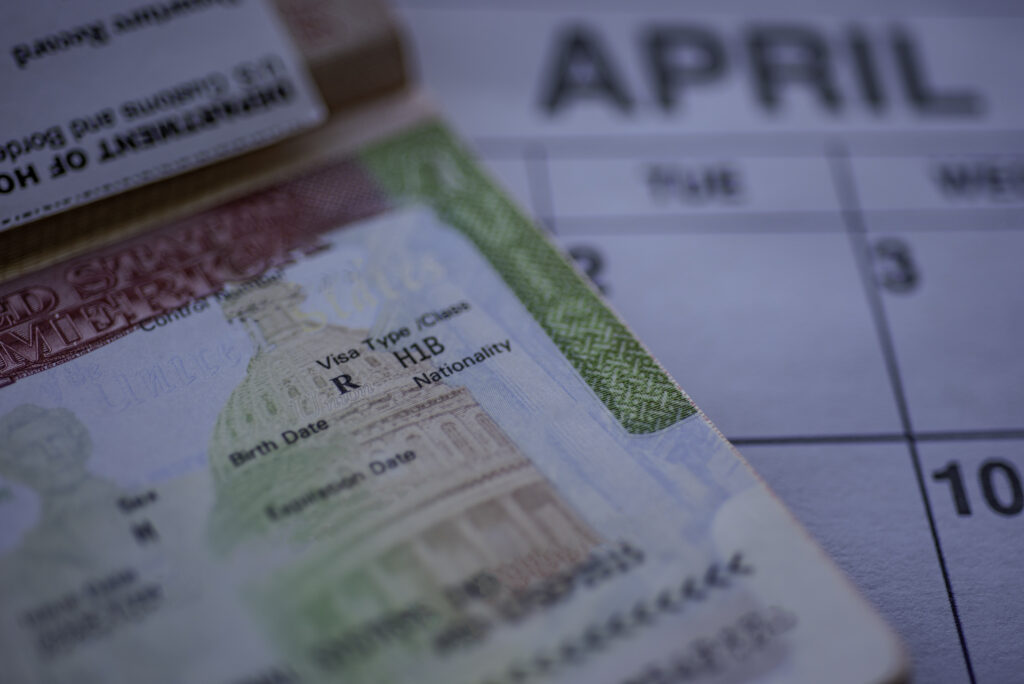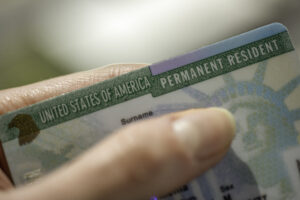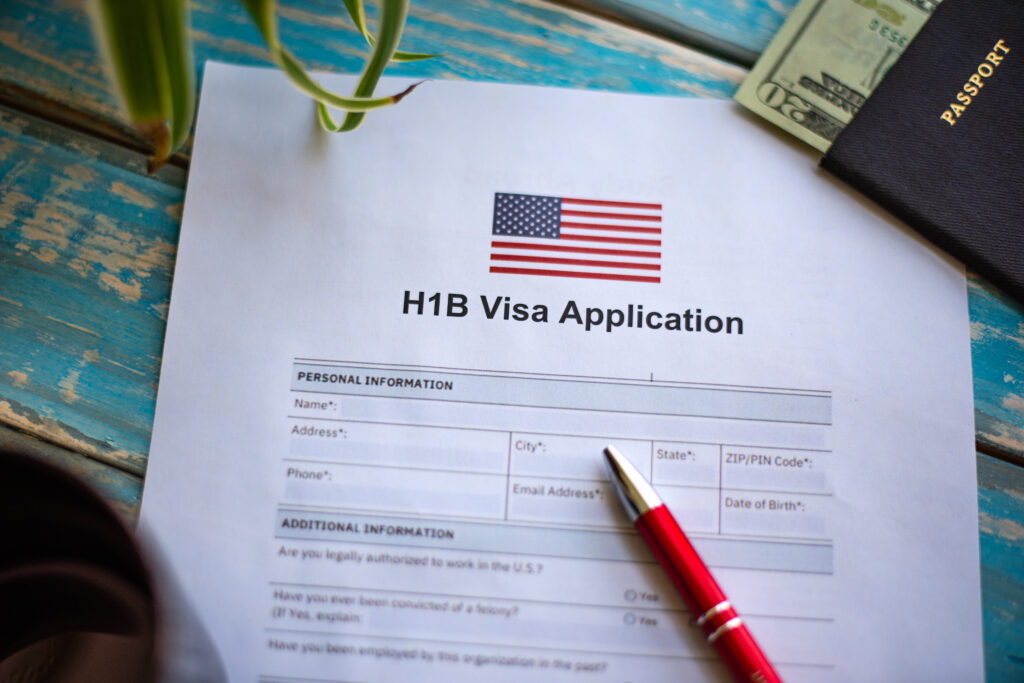

Are you considering working in the United States but need help with the different types of visas available? With so many options for temporary employment, it’s easy to get lost in the sea of acronyms and legal jargon. But don’t worry – we’ve got you covered. We’ll provide an overview of the various types of visas that allow foreign nationals to work in the United States. From the popular H-1B visa to lesser-known options like the O visa, we’ll break down each visa’s requirements and application process, so you can make an informed decision about which one is right for you. So, whether you’re an international student, entrepreneur, or skilled professional, read on to learn more about your options for working in the land of opportunity.

This is the visa most companies use to hire foreign professional workers. The job must be professional in nature, meaning the duties of the position are so specialized that an individual must possess at least a Bachelor’s (or equivalent) degree in the field or a related field (e.g., financial analysts, architects, mechanical engineers, information technology professionals, etc.). There is an annual cap on H-1B visas.
This visa is used for seasonal or temporary agricultural labor (including shepherds and ranch hands). To qualify, the employer must show that there are not enough US workers who are able, willing, qualified, and available to do the job.
This visa is used for seasonal or temporary nonagricultural labor (including landscaping, and hospitality). The employer must demonstrate that there are not enough US workers who are able, willing, qualified, and available to do the job. They must also demonstrate that their need is intermittent, peak load, temporary or seasonal in nature. A lot of companies in the hospitality industry, landscaping, healthcare, etc., use this type of visa category.

This visa is for individuals coming to the United States to receive training in any field of endeavor other than graduate medical education or training. An organization must invite the individual and demonstrate that they will benefit professionally from the training that they cannot receive in their home country. The sponsoring company must have a formal training plan for the sponsored trainee.
The TN visa is available to Canadian and Mexican citizens working in specific professional fields specified under the United States-Mexico-Canada Agreement (USMCA). It was formerly known as the North American Free Trade Agreement (NAFTA). The visa can be issued for up to three years, with renewable extensions. The position the sponsoring company wants to hire the foreign worker must fall within one of the position categories listed under USCMA/NAFTA.
This visa is used for certain employees of an international company who are coming to the U.S. to continue their employment in a parent, subsidiary, affiliate, or branch of the same company. The employee must have worked abroad in the international entity for at least one year within the three years preceding the visa application in an executive, manager, or specialized knowledge capacity.
There are two types of L-1 Visas: The L-1A visa and the L1-B visa.

This visa is for individuals with managerial or executive-level positions who are coming to the U.S. to continue their employment with the same company.
This visa is for individuals coming to the U.S. to work in a position that requires specialized knowledge of the company’s products, services, research, equipment, techniques, management, manufacturing, or other interests and its application in international markets. For example, a software company sent their lead programmer to their U.S. branch under the L1B visa program because he/she has unique expertise in developing artificial intelligence systems that the company relies on for its products. The employee doesn’t have to be the only one with unique knowledge of the company’s products, services, processes, etc., but they must be one of a few within the group.
This visa is available to foreign nationals coming to the United States to work as ministers or in a professional capacity for a religious organization (missionary or other religious denominations). The individual must have been a member of the same religious denomination for at least two years before entering the US.
The E-1 visa is available to citizens of certain countries that have a commercial treaty with the United States and are coming to the United States solely to engage in substantial international trade between their country and the United States. The E-2 visa is similar for individuals coming to the United States solely to invest in a business.

The E-2 visa is available to citizens of certain countries with an investment treaty with the United States and who are coming to the US solely to develop, direct, or manage a substantial business in which they have invested a substantial amount of money.
The E-3 visa is available to citizens of Australia who are coming to the United States solely to work in a specialty occupation (e.g., engineering, computer programming, accounting, etc.). The stay for skilled workers may be up to two years and can be renewed indefinitely.
This visa is available to foreign nationals who have demonstrated extraordinary ability in the sciences, arts, education, business, or athletics and have been recognized nationally or internationally for their achievements. The individual must be coming to the United States to continue work in the same field of endeavor.
This visa allows foreign students, interns, trainees and other professionals to come to the US temporarily for the purpose of cultural exchange. The applicant must meet certain requirements, such as having an employer willing to sponsor them. Some J-1 exchange visitors are subject to a 2-year foreign residency requirement.
Applying for temporary work visas in the United States is complicated and detailed. It’s essential for employers who are looking to employ a foreign worker to understand that there are many rules and regulations mandated by the US government which need to be met to be successful in obtaining a work visa for a foreign worker. Employers should work under the guidance of an experienced law firm focused on employment immigration matters such as Bashyam Global Immigration Law Group to ensure the best possible outcome in obtaining temporary visas.
Immigration lawyers can:

Generally speaking, holding a work visa in the United States does not automatically qualify you for permanent residency. Permanent residents receive a green card, which is different than a work visa. However, depending on the type of immigrant visa and your particular circumstances, obtaining permanent residence (a green card) may be possible due to working in the US.
In any case, it is highly recommended to consult with an experienced immigration attorney before applying for a work visa to ensure you understand all of the implications and requirements.
In summary, obtaining a job-based visa is often complicated and can take a substantial amount of time.
Remember that each type of work visa has specific requirements and restrictions, so it’s essential to research beforehand to ensure the employee is eligible for the particular visa. Additionally, many non-immigrant visas need to be renewed periodically, so it’s vital to keep track of the expiration date on your visa.

If you have any questions or concerns, contact the immigration attorneys at Bashyam Global Immigration Law Group online or call us at (919) 833-0840 to schedule a consultation. Our team can advise you on the best course of action and guide you through the immigration process.